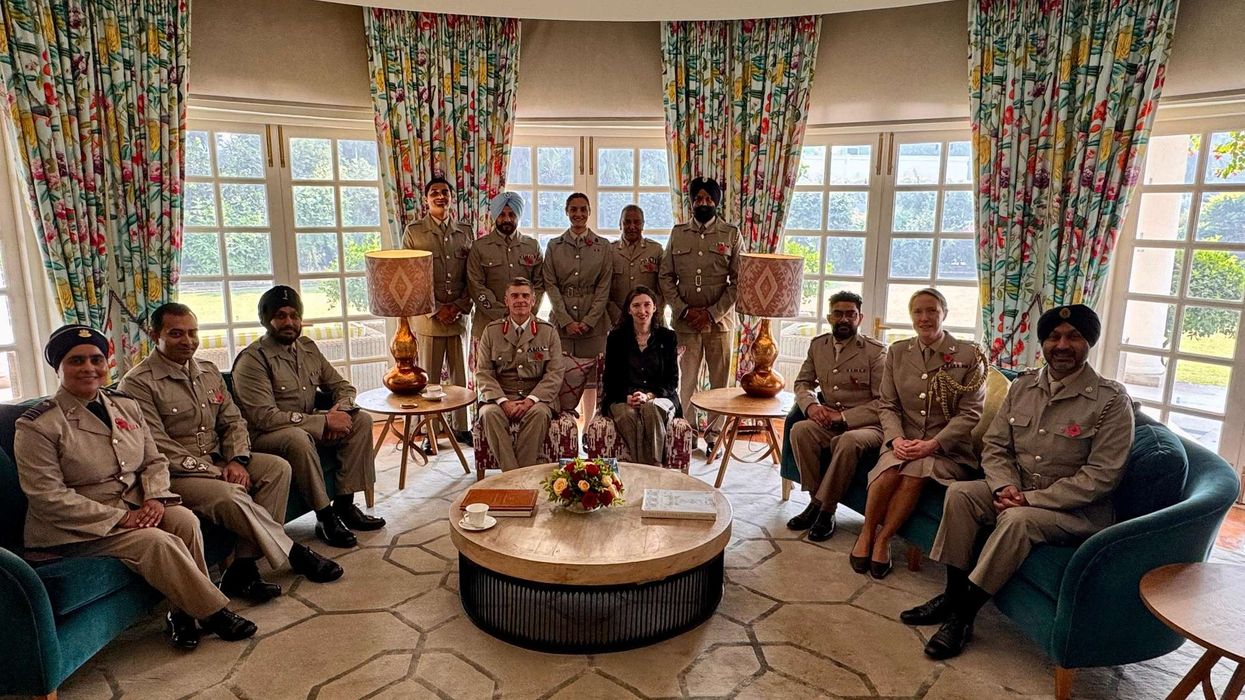THE headline in the Daily Telegraph read: An 18-year-old with a higher IQ than Stephen Hawking has passed 23 A-levels.
The gushing piece went on to report that Mahnoor Cheema, whose family originate from Pakistan, had also received an unconditional offer from Oxford University to read medicine.
She was quoted in the newspaper as declaring: ‘I was absolutely set on it (studying medicine at Oxford). There was not a world in my mind where I would not get in. That is not cocky but that was my determined life path. If I did not get in I would have reapplied,’
She clearly didn’t need quite so many A-levels to fulfil her ambition, but I suggest there is something psychological about the possible role of an Asian mind-set, which may partly explain the impressive phenomenon that is Mahnoor Cheema.
According to a recent study, rates of Higher Education participation stood at 45 per cent for black British young people, 50 per cent for British south Asians, and 68 per cent for British Chinese, compared to just 30 per cent for the white British ethnic group.
Until recently, however, the same study reported that black British, British Pakistani and British Bangladeshi students have been substantially under-represented at the UK’s most academically selective universities. Research also reveals that BAME applicants to highly selective colleges have been less likely to be offered places than their comparably qualified white British peers.
In response to race discrimination, some opt for complaining, and campaigning, to change the system.
I venture to suggest that perhaps, instead, the Asian way is to keep your head down, stay out of politics, and away from getting grumpy, and instead, get so many A-levels that Oxford University made this young Asian girl, an unconditional offer of a place, a full year before she even finished getting all her A-levels.
In response to her famous school, Henrietta Barnett, objecting to her missing lessons in order to take all these extra exams, she reportedly left, and studied from home.
So this younger generation of Asians, may be more rebellious than their parents.
This can only be a positive signpost for their ability to take the rightful place in society, a position which reflects their hard work and talent. Especially if we see this defiance in girls.
South Asian girls, in my experience, have traditionally been somewhat suppressed by a male dominated family structure, leading to some surveys finding higher rates of mental illness and selfharm. I would, however, like to counsel Mahnoor Cheema, that although she clearly worked hard to understand the rules of the game in terms of academic success, and getting into a highly selective university degree programme, this doesn’t mean the same rulebook applies to success, after you leave the academy.
In the cloistered environment of an elite academic establishment, being smart and signalling your smartness are key. But when you venture out into the wild world, different considerations start to compete.
At an interview to get into a top medical school, the professor grilling you will only be too pleased at the prospect of the intellectual challenge of teaching someone who they suspect may be as talented as themselves.
But when you vacate the academic world and start applying for jobs, beware of appearing too clever, as then your boss and colleagues may feel threatened. A new currency starts to be the key exchange, and this becomes likeability.
There is even a word for it among the old-school elite in the UK, ‘clubbable’. Many a time I have found myself in conversations with the eminent fellow members at The Athenaeum Club in Pall Mall, famously described as the ‘brainy club’ because of its enviable list of Nobel Prize winners who are, or were, members, or even The Reform Club (more politics than prizes), also in Pall Mall, where that characterisation has been deployed to explain why some talented applicant is being excluded from some social, or academic, or professional circle.
Indeed, in my experience, one of the particular issues in British culture that outsiders find difficult to grasp, is that likeability may even count for more than competence. I learned from competing in debating and public speaking competitions, while at school, that deploying the strongest and best researched argument was not nearly as effective as just being funny.
I am sure that Mahnoor is shrewd enough to realise that in the future, instead of declaring that studying medicine at Oxford was her ambition, and she was prepared to be relentless in her efforts at securing a place there, charming though she was in her honesty, a more socially astute move might be, instead to declare how pleasantly surprised she was to have been awarded a place, and to give thanks that she ‘got lucky on the day’.
Also, how she was so busy playing tennis, golf, shooting clay pigeons, going night-clubbing, saving dolphins and painting her nails, that she barely had time to study.
Indeed, she didn’t.
Most of the time.
Because naked ambition is something a bit embarrassing in Britain today. Also, if she didn’t get into Oxford, she would accept the decision of the panel, and she declares she would re-train as a paediatric nurse.
Because she loves the uniform.
And children.
But the Asian mind-set is so impressed by hard work, talent and achievement, it forgets what’s actually needed to survive in Britain, where the rules of how to be socially and professionally accepted are the hardest, compared to anywhere else in the world, to figure out.
Particularly if you were not born into the aristocracy.
But in my clinical private practice in Harley Street, I see many members of the ruling class, and so I have had the rules of their game patiently explained to me, by those who write the rulebooks. These instructions include that after you turn up at Lord’s cricket ground and score a hundred, you apologise at the subsequent press conference that you are still hung-over from pulling an ‘all-nighter’, celebrating with your old regiment who had just returned from a posting overseas.
The members in the MCC pavilion will then raise a glass to you and confirm, you are indeed a jolly good chap.
So let me boil it down for you, particularly for all those pushy Asian parents who just don’t get it.
Sometimes, the smartest move to make in life is ... to know when to play dumb.
 Peter Searle
Peter SearleDr Raj Persaud is a consultant psychiatrist in Harley Street London and is author of the only guide on how to survive in a post covid world – the Mental Vaccine for Covid 19 published by Amberley Publishing


















Anurag Bajpayee's Gradiant: The water company tackling a global crisis